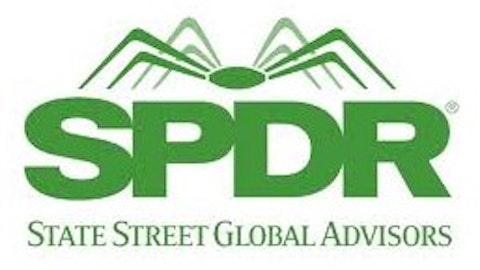
Less tech, more travel. While Farallon still owned Apple Inc. (NASDAQ:AAPL) and Google Inc (NASDAQ:GOOG) at the end of September, it sold shares of both stocks during the third quarter of the year: its Google holdings fell by about 10% and the fund sold about a third of its Apple Inc. (NASDAQ:AAPL) shares. Among the stocks that it bought in their place was travel website Priceline.com Inc (NASDAQ:PCLN); the fund increased its stake to about 250,000 shares from about 140,000 three months earlier. These transactions took place before the pullbacks in both companies’ stock prices began in earnest in October; we think that this correction has created a great buying opportunity at Apple Inc. (NASDAQ:AAPL), which is now trading at only 12 times trailing earnings despite a strong brand and high growth rates. See our continuing updates on news regarding Apple. We’re less sure of Google, which has disappointed investors with its lack of progress in integrating its acquisition of Motorola Mobility Holdings. Its earnings multiples are considerably higher, and while we’d expect the company’s growth to resume the forward P/E multiple of 14 isn’t necessarily a steal. Priceline continues to turn in strong growth rates- earnings were 27% higher last quarter than a year earlier- though it too now has a minefield ahead of it with its potential acquisition of competitor Kayak. It carries trailing and forward P/Es of 24 and 17, respectively. We’ve seen it as a potential growth stock in the past, though we worry that it may be overpaying for Kayak and that the acquisition won’t create much shareholder value.
Nexen merger arb. Nexen Inc. (NYSE:NXY) was a new holding in Farallon’s portfolio, with Steyer and his team initiating a position of 8.7 million shares. In late July the oil and gas company, which is most notable for its position in the Alberta oil sands, became a takeover target with Chinese oil company CNOOC proposing an acquisition. The deal is controversial in Canada, and approval is not yet certain (the government has set December 10th for an announcement date, though this is after a delay). The stock had been trading between $16 and $17 before the offer, and is now a bit above $24. With CNOOC’s offer for $27.50 per share, this is a merger arbitrage play that investors still have a chance to participate in (read about why hedge funds like merger arbitrage opportunities). Of course, the reason the stock is trading at a discount to the offer price is because of the possibility that the deal will be rejected, so we plan to stay clear of it ourselves.
Visa. The fund’s position in Visa Inc (NYSE:V) ticked up to 1.2 million shares from about 940,000 shares at the beginning of July. The credit card issuer has climbed 38% year to date, and its business is seeing strong improvement. According to the company’s 10-Q, revenue at Visa was up 15% in the third quarter compared to the same period in the previous year and net income nearly doubled. Investors expect strong growth at Visa, as it currently trades at 17x consensus earnings for the fiscal year ending in September 2014. We think Visa’s a great company but we wonder if it can continue to grow as rapidly as it has, and would note that other credit card companies such as Capital One and Discover are considerably cheaper.
We’re taking note of Farallon’s sale of Apple Inc. (NASDAQ:AAPL) but we still think that the drop in the stock price has created a buying opportunity at the company. We are also skeptical of the buys that the fund has made instead, as Visa and Priceline look about fairly prices (and Visa at least has peers that look to be much better values) while the Nexen deal isn’t something that we’d be confident in putting our money behind.




